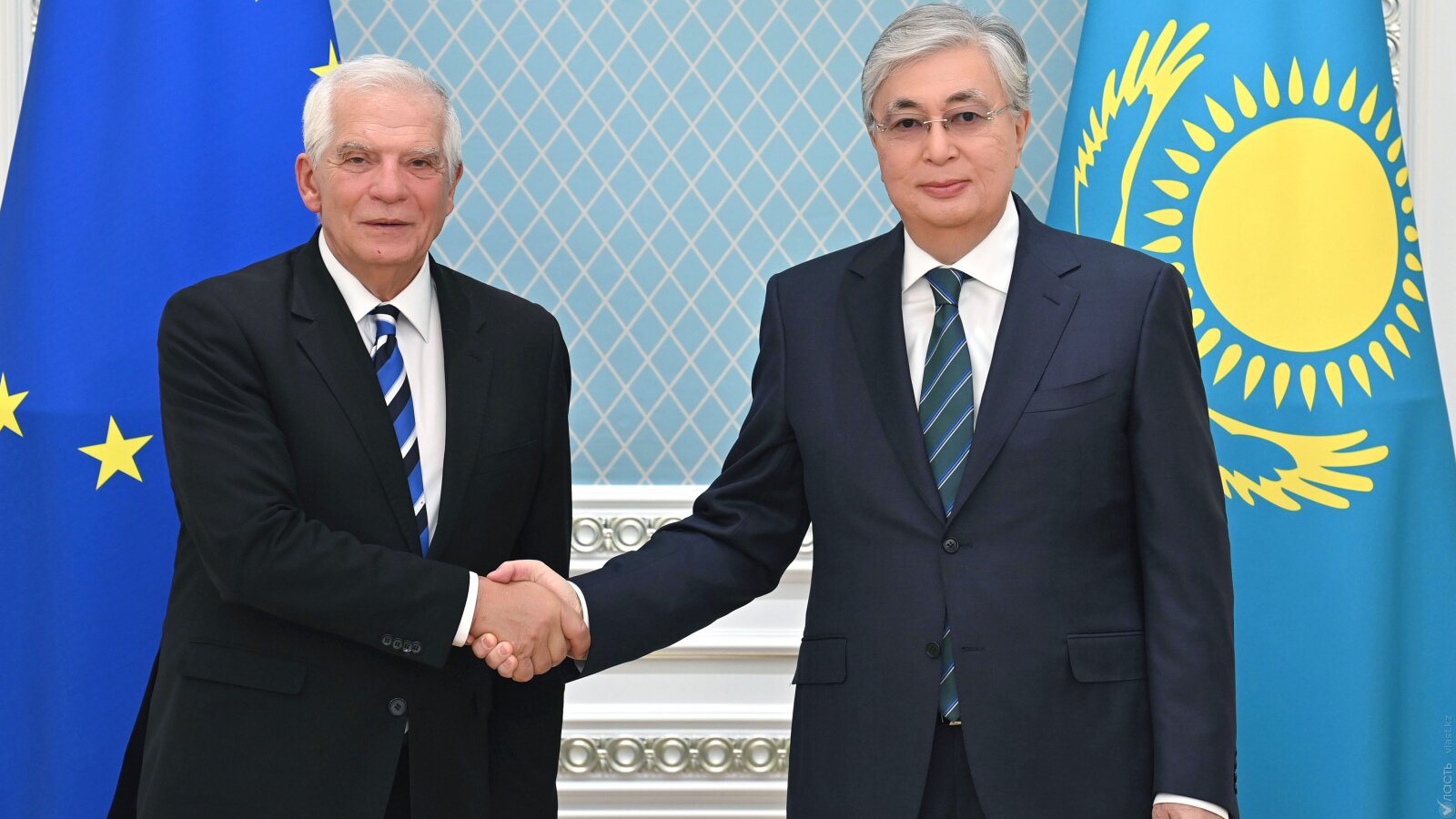- ВКонтакте
- РћРТвЂВВВВВВВВнокласснРСвЂВВВВВВВВРєРСвЂВВВВВВВВ
On November 17, the National Security Committee (KNB) said it arrested a “criminal group” planning to organize a mass riot on November 20, the day of Kazakhstan’s presidential elections. Seven people were detained during a special operation.
In a speech in Almaty on November 17, Kassym-Jomart Tokayev remembered the January Events and urged the population to clearly distinguish between peaceful rallies and criminals: “We must not succumb to provocations of the destructive forces that are trying to sow discord in our society.”
The following day, the General Prosecutor’s Office warned the population against joining unauthorized rallies on election day.
Several activists across the country were detained ahead of election day. Aigerim Tleuzhan was put under house arrest for two months in relation to charges pressed against her in October, when the General Prosecutor accused her to be among the organizers of the seizing of the Almaty international airport during Qandy Qantar. On November 15, activist Asset Abishev was also detained and charged with violating laws on public gatherings.
On November 17, Josep Borrell, the EU High Representative for Foreign Affairs and Security Policy and Vice-President of the European Commission, met Tokayev in Astana and reiterated the European Union’s readiness to collaborate with Kazakhstan.
The McDonald’s franchise in Kazakhstan said it would halt operations in its 24 restaurants across the country. Food Solutions LLP has managed the franchise since 2015. Its owner, Kairat Boranbayev, is one of Kazakhstan’s richest men and he was arrested in March in relation to alleged mishandling of public funds in the transport of natural gas. The company said the temporary closure of its stores is linked to problems with its suppliers.
After a LPG fuel shortage last week in the Atyrau region, motorists complained of similar shortages in Uralsk, in the neighboring West Kazakhstan region. Fuel price inflation caused mass protests across the western regions in early January, which spread all across the country, and were quashed by the authorities.
Kazmunaigas, the state-owned oil and gas company, said its oil production in the first 10 months of 2022 had decreased by 2.5%, but it plans to grow its production significantly from its larger fields in the near future. The company’s CEO Magzum Mirzagaliyev said it expects a production spike by 40% at Tengiz, the country’s largest field. The company came under fire this week when it disclosed a $8.3 billion total debt, which could have negatively impacted its value ahead of the planned IPO. Mirzagaliyev said the debt more than halved in the past eight years.
Halyk Bank, the country’s largest financial institution, posted a net profit growth of 26% in its quarterly report. On November 17, the bank also said it was selling its fully-owned subsidiary in Tajikistan to the International Bank of Tajikistan. The transaction should be completed by next month, the bank said.
Bereke Bank, formerly-known as Sberbank Kazakhstan, is the only bank in the country that, as of the end of October, showed a rate of capital adequacy below the national standards, the Central Bank said on November 18. Capital adequacy ratio measures a bank’s readiness to weather a sudden credit crisis. On November 17, Andrei Timchenko, ex-CEO of Alfa-Bank Kazakhstan, became the CEO of Bereke.
Kazakhstan’s government will increase its share in the Eurasian Development Bank, which it co-owns with the Russian government. With an investment of around 30 billion tenge ($58 million), Kazakhstan’s share will increase from 33% to 37.2%.
Поддержите журналистику, которой доверяют.








